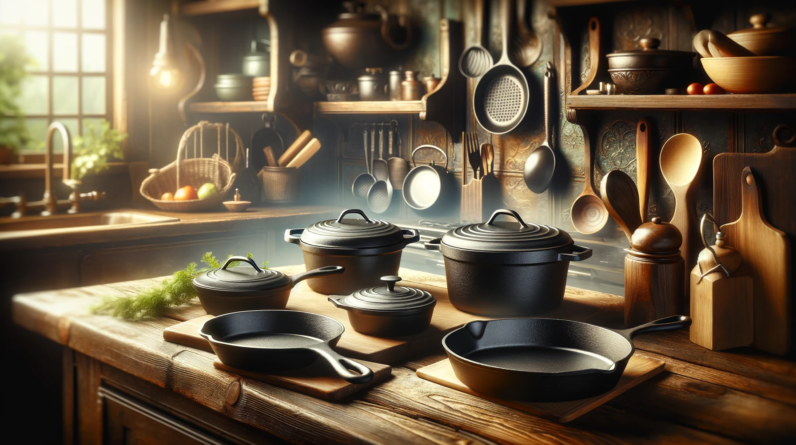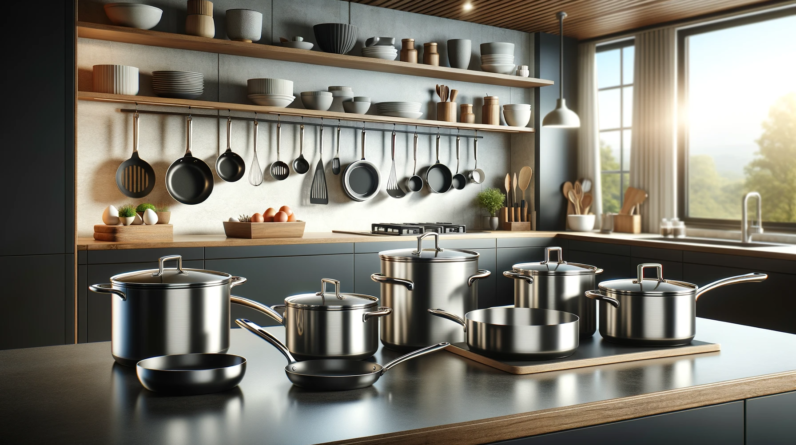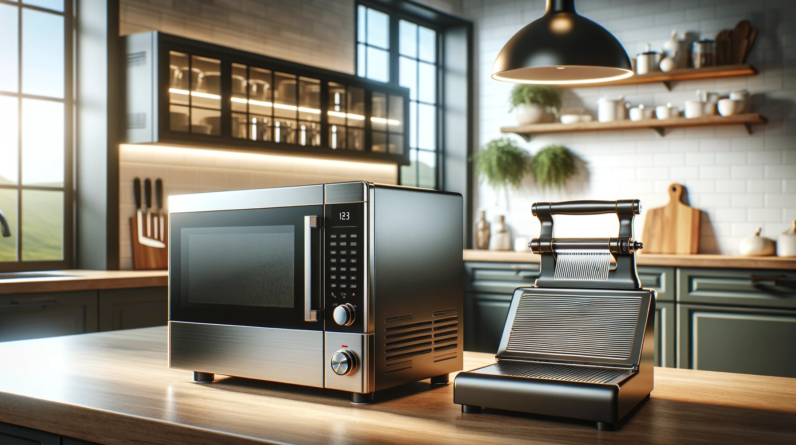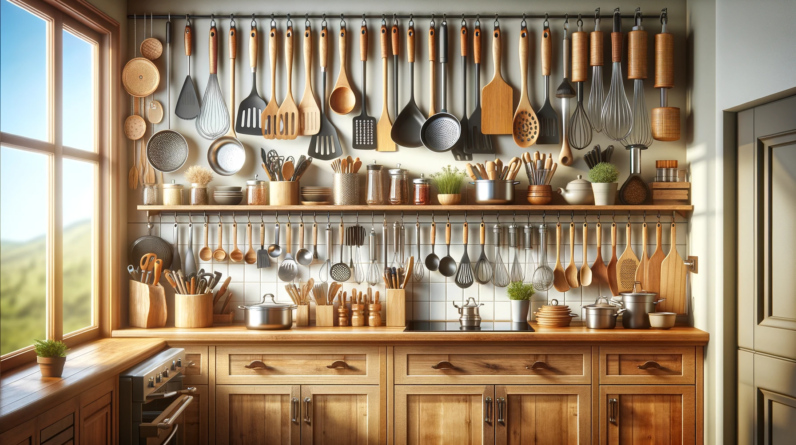
Disclaimer: This post may contain affiliate links. As an Amazon Associate, we earn from qualifying purchases.
Have you ever wondered how many sets of utensils you should actually have in your kitchen? It’s a question we often ponder, especially when trying to streamline our cooking and dining arrangements. Whether you’re a passionate home cook or simply looking for some practical advice, this article will help you determine the ideal number of utensil sets you need to have on hand.
So, let’s get started and find the perfect balance between practicality and convenience in your kitchen!
Factors to Consider
Frequency of entertaining guests
When determining how many sets of utensils you should have, one of the first factors to consider is the frequency at which you entertain guests. If you often have friends and family over for meals or parties, it’s important to have enough utensils to accommodate everyone.
This ensures that everyone has a comfortable dining experience without having to share or wait for utensils to be washed.
Size of your household
 The size of your household is another crucial factor to consider. Each member of your household should have their own set of utensils, including forks, knives, spoons, and other essential tools. By providing each person with their own set, you can avoid any confusion or mix-ups with utensils.
The size of your household is another crucial factor to consider. Each member of your household should have their own set of utensils, including forks, knives, spoons, and other essential tools. By providing each person with their own set, you can avoid any confusion or mix-ups with utensils.
Additionally, having separate sets for each member of the household can make mealtime more enjoyable and convenient.
Types of meals you usually cook
The types of meals you usually cook can also impact the number of utensils you should have. If you often cook elaborate recipes that require a variety of utensils, such as whisking, slicing, or measuring tools, it’s important to have enough sets to accommodate these needs.
On the other hand, if you primarily cook simple meals that only require basic utensils, you might not need as many sets.
Lifestyle and personal preferences
Lastly, your lifestyle and personal preferences play a significant role in determining how many sets of utensils you should have. Some individuals prefer to have a larger collection of utensils to cater to their specific needs and to allow for more variety in their dining experiences.
Others might prefer a minimalistic approach and opt for a smaller number of sets. Consider what works best for your lifestyle and aligns with your personal preferences when making this decision.
Minimum Recommended Sets
One set per person
As mentioned earlier, it’s generally recommended to have at least one set of utensils per person in your household. This ensures that each individual has their own set of forks, knives, and spoons for personal use. Having one set per person also simplifies mealtime logistics and eliminates the need for sharing or washing utensils immediately after each use.
Additional set for guests
In addition to having one set per person in your household, it’s also a good idea to have additional sets specifically designated for your guests. This is particularly important if you frequently have guests over for meals or if you enjoy hosting dinner parties.
By having extra sets of utensils on hand, you can ensure that your guests have everything they need to enjoy their meal comfortably.
Special Occasions
Consider extra sets for special occasions
Special occasions often call for larger gatherings and more elaborate meals. To accommodate these events, it’s worth considering having extra sets of utensils. Depending on the size of your gatherings, you might need several additional sets to ensure that all your guests have proper utensils. Remember, it’s always better to have extras than to be caught unprepared.
Invest in formal dining sets
For formal occasions, investing in a separate set of formal dining utensils can add an extra touch of elegance to your table settings. Formal dining sets typically include specialized utensils like fish knives, salad forks, and butter spreaders. Having a dedicated formal set can elevate your dining experience and impress your guests during special events or celebrations.
Types of Utensils
Standard utensils
Standard utensils include items like forks, knives, spoons, and serving utensils. These are the essential tools that you’ll likely use on a daily basis for your regular meals. It’s important to have an adequate number of standard utensils to meet your household’s needs. Look for utensils that are comfortable to hold, easy to clean, and durable enough to withstand regular use.
Specialty utensils
Specialty utensils refer to tools that are designed for specific tasks or cuisines. Examples include tongs, pasta servers, cake servers, and cheese knives. Depending on your cooking style or the types of meals you prepare regularly, you may need to consider adding a few specialty utensils to your collection. These tools can make certain tasks easier and more enjoyable, enhancing your overall cooking and dining experience.
Quality vs. Quantity
Invest in quality utensils
When it comes to utensils, it’s essential to strike a balance between quality and quantity. While it may be tempting to opt for inexpensive and mass-produced utensils, investing in higher-quality options can offer numerous benefits in the long run. Quality utensils are generally more durable, resistant to wear and tear, and provide a better overall dining experience.
Consider a balance between quality and quantity
While it’s important to invest in quality utensils, it’s also crucial to consider the quantity that aligns with your needs. There’s no need to go overboard and purchase excessive amounts of utensils that will rarely, if ever, be used. Strike a balance between quality and quantity by investing in a sufficient number of high-quality utensils that can meet your household’s needs.
Storage Space
Consider available storage space
Before increasing the number of utensil sets you own, take a moment to assess your available storage space. Utensils can take up considerable room in your kitchen drawers or cabinets, so it’s important to ensure that you have adequate space to store them all.
Consider your storage options, such as drawer dividers, hanging utensil racks, or extra shelving units, to optimize your storage space.
Optimize organization and storage solutions
 To maximize your storage space and keep your utensils easily accessible, consider organizing them efficiently. Use utensil trays or dividers to keep forks, knives, and spoons separated and neatly arranged in your drawers. Hanging racks or wall-mounted magnetic strips can also be great options for displaying and storing utensils, freeing up valuable drawer space.
To maximize your storage space and keep your utensils easily accessible, consider organizing them efficiently. Use utensil trays or dividers to keep forks, knives, and spoons separated and neatly arranged in your drawers. Hanging racks or wall-mounted magnetic strips can also be great options for displaying and storing utensils, freeing up valuable drawer space.
Maintenance and Durability
Choose utensils that are easy to maintain
Utensils that are easy to clean and maintain can save you time and effort in the long run. Look for stainless steel or dishwasher-safe utensils, as they are generally more resistant to stains, rust, and corrosion.
Avoid materials that require extensive hand washing or special care, unless you’re willing to invest the extra time and effort required to maintain them properly.
Consider durability and lifespan
Durability is another key aspect to consider when selecting utensils. Opt for sturdy, well-constructed utensils that can withstand repeated use without bending or breaking. While it may be tempting to choose utensils with intricate designs or delicate handles, keep in mind that they may not hold up as well over time.
Prioritize utensils that are built to last in order to get the most value out of your investment.
Budget Considerations
Determine your budget
Before embarking on your utensil shopping journey, it’s important to determine your budget. Having a clear understanding of how much you’re willing to spend will help you make informed decisions and prevent overspending.
Consider the quality, durability, and lifespan of the utensils you’re considering to ensure that they fit within your budget while still meeting your needs.
Research for sales and discounts
To make the most of your budget, take the time to research for sales, discounts, and promotions. Many retailers offer regular sales on kitchen utensils, especially during seasonal or holiday periods. Online marketplaces and specialty kitchen stores often have competitive prices, too. By comparing prices and looking for deals, you can find quality utensils at more affordable prices.
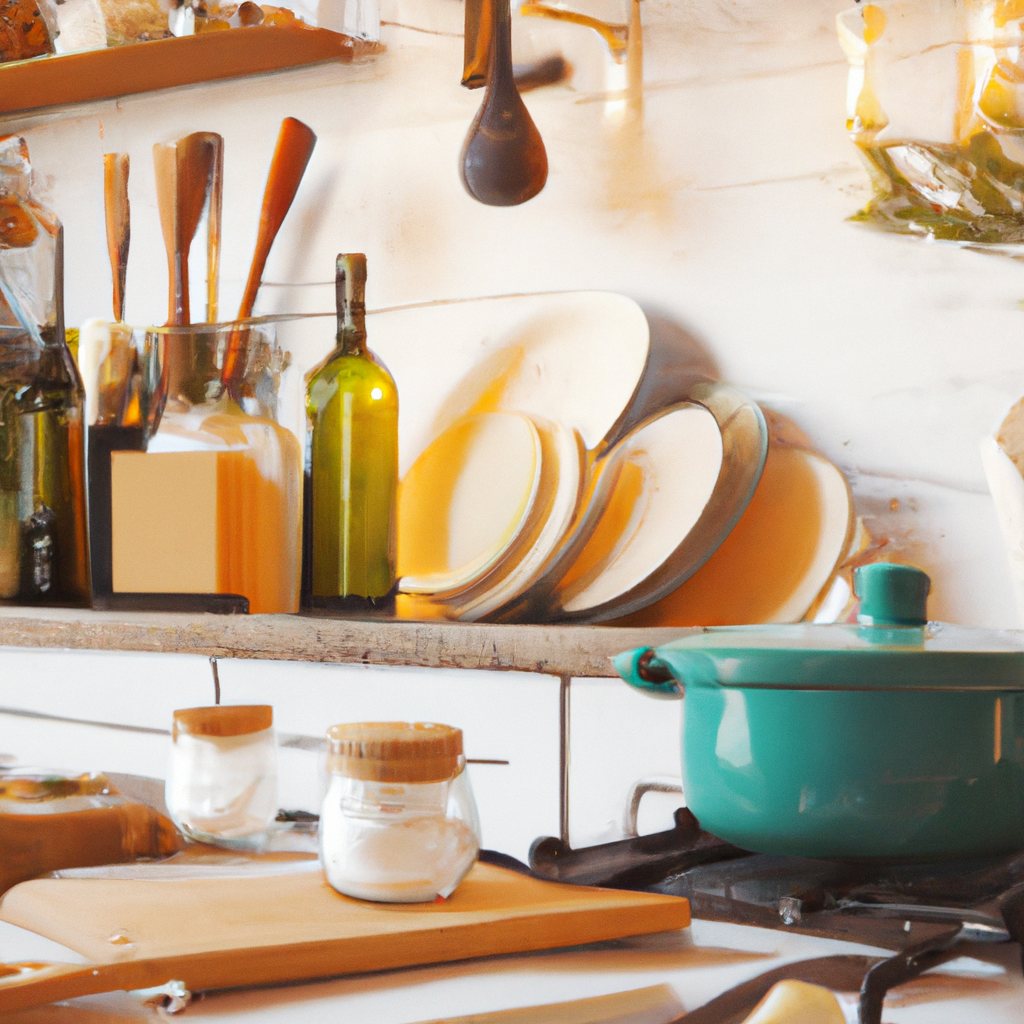
Eco-Friendly Options
Consider eco-friendly materials and production methods
If you’re conscious about the environment, consider investing in utensils made from eco-friendly materials.
Look for options made from sustainable resources, such as bamboo or recycled materials, that have a smaller carbon footprint compared to traditional materials like plastic or non-renewable metals.
Additionally, seek out utensils that are produced using environmentally conscious methods to minimize their impact on the planet.
Invest in sustainable utensils
In addition to choosing eco-friendly materials, you can further support sustainability by investing in utensils that are designed for durability and longevity. Instead of constantly replacing inexpensive utensils, choose high-quality options that will last for years to come.
By reducing waste and embracing sustainability in your utensil choices, you can make a positive impact on the environment.
Updating Your Utensils
Replace damaged or worn-out utensils
Over time, utensils can become worn out or damaged, affecting their functionality and appearance. It’s important to regularly assess your utensil collection and replace any items that are no longer serving their purpose. This ensures that you always have a complete and functional set of utensils for your household’s needs.
Stay updated with new trends and innovations
As with any aspect of kitchenware, utensil designs and technology are constantly evolving. Staying updated with new trends and innovations can enhance your cooking and dining experience. Keep an eye out for utensils that offer innovative features, ergonomic designs, or improved functionality.
While it’s not necessary to own every trendy utensil, adding a few to your collection can enhance your culinary adventures.
Donate or recycle old utensils
When updating your utensils, consider donating or recycling your old ones.
If your utensils are still in good working condition, donating them to local charities, shelters, or community organizations can benefit those in need.
Alternatively, you can contact recycling centers or facilities that accept metal or plastic utensils and follow their guidelines for proper disposal.
By responsibly handling your old utensils, you can reduce waste and contribute to a more sustainable future.
I guess the number of sets of utensils you should have depends on several factors, including the frequency of entertaining guests, the size of your household, the types of meals you usually cook, your lifestyle and personal preferences, and budget considerations.
It is generally recommended to have at least one set per person in your household, with additional sets for guests and special occasions. It’s important to invest in quality utensils that are easy to maintain and durable. Consider eco-friendly options and periodically update your utensil collection as needed.
By taking these factors into account, you can ensure that you have the perfect number of utensils to meet your needs and enhance your dining experiences.


